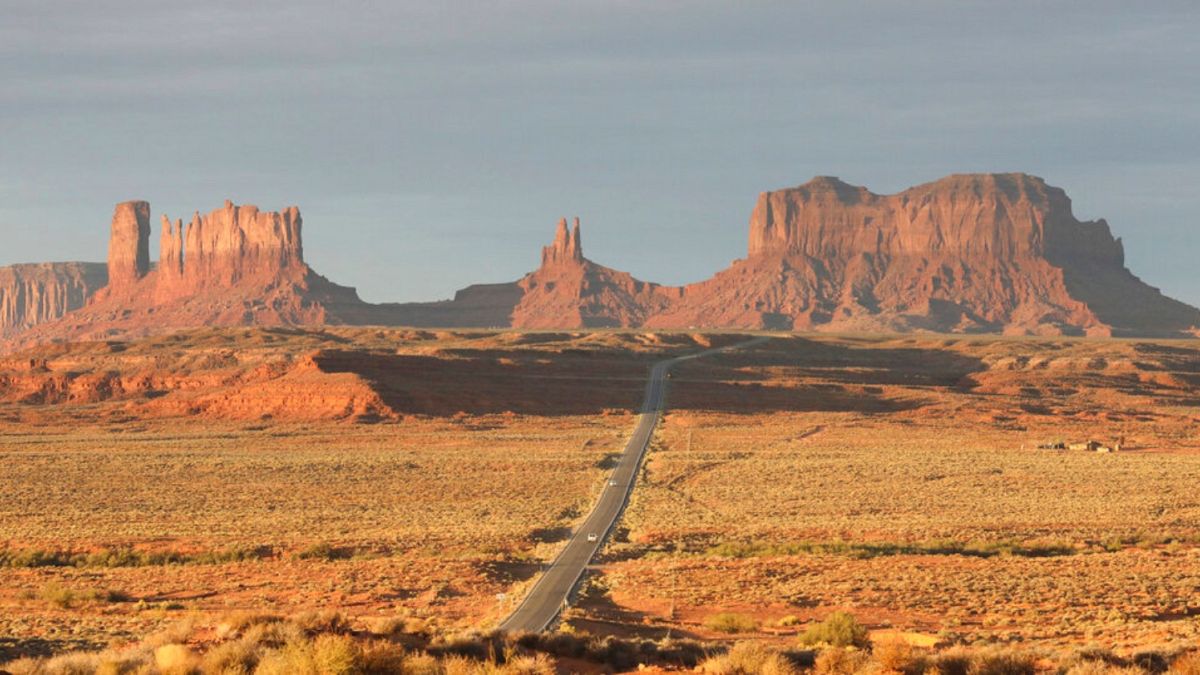COVID-19 is hitting Native Americans in the US hard. But the Irish are donating to them in large numbers to repay for help during the Potato Famine of the 1840s.
A crowdfunding campaign to help Native Americans hit hard by the coronavirus pandemic has been flooded with donations from Ireland in remembrance of a centuries-old bond.
A GoFundMe page for Navajo and Hopi families affected by COVID-19 had raised over $3.1 million (€2.85m) as of Friday, helped by thousands of donations from people with Irish surnames.
Many donors left comments saying they were giving in remembrance of Native American aid to Ireland during the Great Hunger of the 1840s.
"It’s quite touching and just mind-blowing, really. I checked with GoFundMe and they confirmed we had over 20,000 donations from Ireland to our campaign – amounting to over $670,000 in donations," Ethel Branch, who organised the fundraiser, told Euronews in a live interview.
The reason for the donations stretches back to 1847 when members of the Choctaw tribe sent money to help starving Irish families during the potato famine.
When Naomi O'Leary, a journalist at The Irish Times, pointed out on Twitter that now was an opportunity for the Irish to repay that generosity, the campaign suddenly picked up.
"It’s just incredible, the generosity that the Irish people have shown to Navajo Nation," Branch said.
On the GoFundMe pages, many messages from donors read "Ireland remembers".
Others read: "Ní neart go cur le chéile" (There is no strength without unity).
O'Leary told Euronews she was "delighted" that her tweet helped, but that many Irish people had already made the connection and donated to the campaign before she shared it with her more than 40,000 followers.
The real driver, she said, is the "enduring gratitude for the help that came from so far away, from people who had so little themselves."
Native Americans among the hardest hit
Navajo Nation, whose territory stretches across 71,000 km across the states of Arizona, New Mexico and Utah, now has the third-highest per-capita infection rate from coronavirus in the United States, behind New York and New Jersey.
According to the Navajo Department of Health, there were a total of 2,757 cases of COVID-19 with 88 confirmed deaths as of Thursday.
Around a third of Navajo Nation households don’t have running water, which makes regular hand-washing difficult, while crowded homes bringing together several generations under the same roof can make social distancing nearly impossible.
American Indian people also generally have high rates of obesity and diabetes, which put them at greater risks of complications from COVID-19.
How is the money raised helping them?
The Navajo & Hopi Families COVID-19 Relief Fund has been buying food and water for the elderly, high-risk and vulnerable people including single parents, grandparents raising their grandchildren and families that can’t afford to stockpile food under lockdown.
"We do try to provide two weeks’ worth of food so people can self-isolate for a meaningful period of time," Branch explained.
She added that efforts were underway to make and distribute facemasks for people to wear when out in public across the reservation.
"So far, we have served over 3,000 families in over 50 communities on Navajo Nation and also provided food and water to 5 of the 12 Hopi villages."
Watch more excerpts from the interview with Ethel Branch in the video player above.
